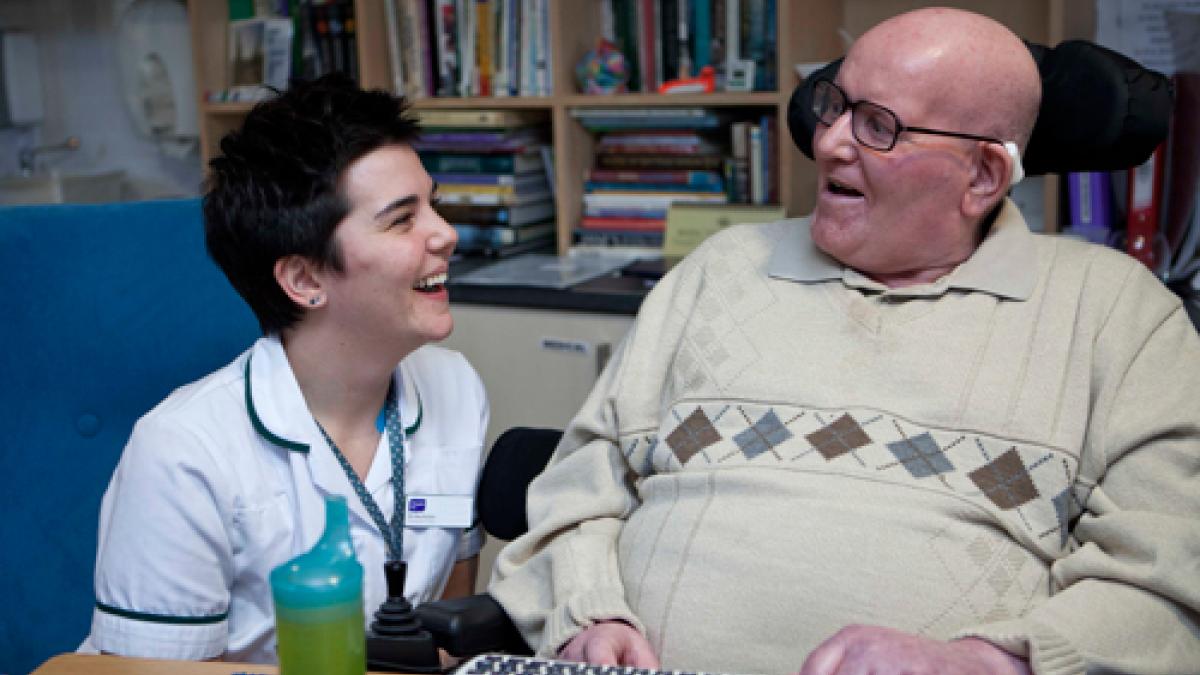People with motor neurone disease (MND) should receive specialist care from a clinic-based multidisciplinary team that includes physiotherapists.

The guideline recommends that specialist physios, including respiratory physios, should be part of MND multidisciplinary teams. Photo: Motor Neurone Disease Association
The National Institute for Health and Care Excellence (NICE) gives this advice in a new guideline, published on 24 February 2016.
It calls for an expert multidisciplinary team to be involved at all stages in the care of people with MND, to make sure that decisions about a person’s care are tailored to their individual needs and circumstances.
It also recommends that MND multidisciplinary teams should include a specialist physiotherapist and a respiratory physiotherapist, as well as a neurologist and other expert health professionals.
Co-ordinated care
Caroline Brown, principal physiotherapist in emergency, cardiothoracic and specialised medicine at University Hospitals of North Midlands NHS Trust, was a member of the NICE MND guideline development group and said her involvement had been a ‘huge privilege’.
She told Frontline: ‘Co-ordination of care through regular MND multidisciplinary team clinic reviews will ensure people’s symptoms and needs are assessed as their condition changes, while any care provided is consistent and responsive.
‘Prompt access to professionals who understand the condition will ensure that individuals have the opportunity to discuss and access appropriate care at the appropriate time which can help improve quality of life and survival for patients and their carers'.
Daily living needs
The guideline also recommends that physiotherapists and occupational therapists should assess and anticipate changes in the daily living needs of people with MND, by taking into account
- mobility issues, avoiding falls and problems from loss of dexterity
- the home environment and the need for adaptations
- personal care, dressing and bathing
- housework, shopping and food preparation
- the need for assistive technology
Find Out More
Number of subscribers: 0



































